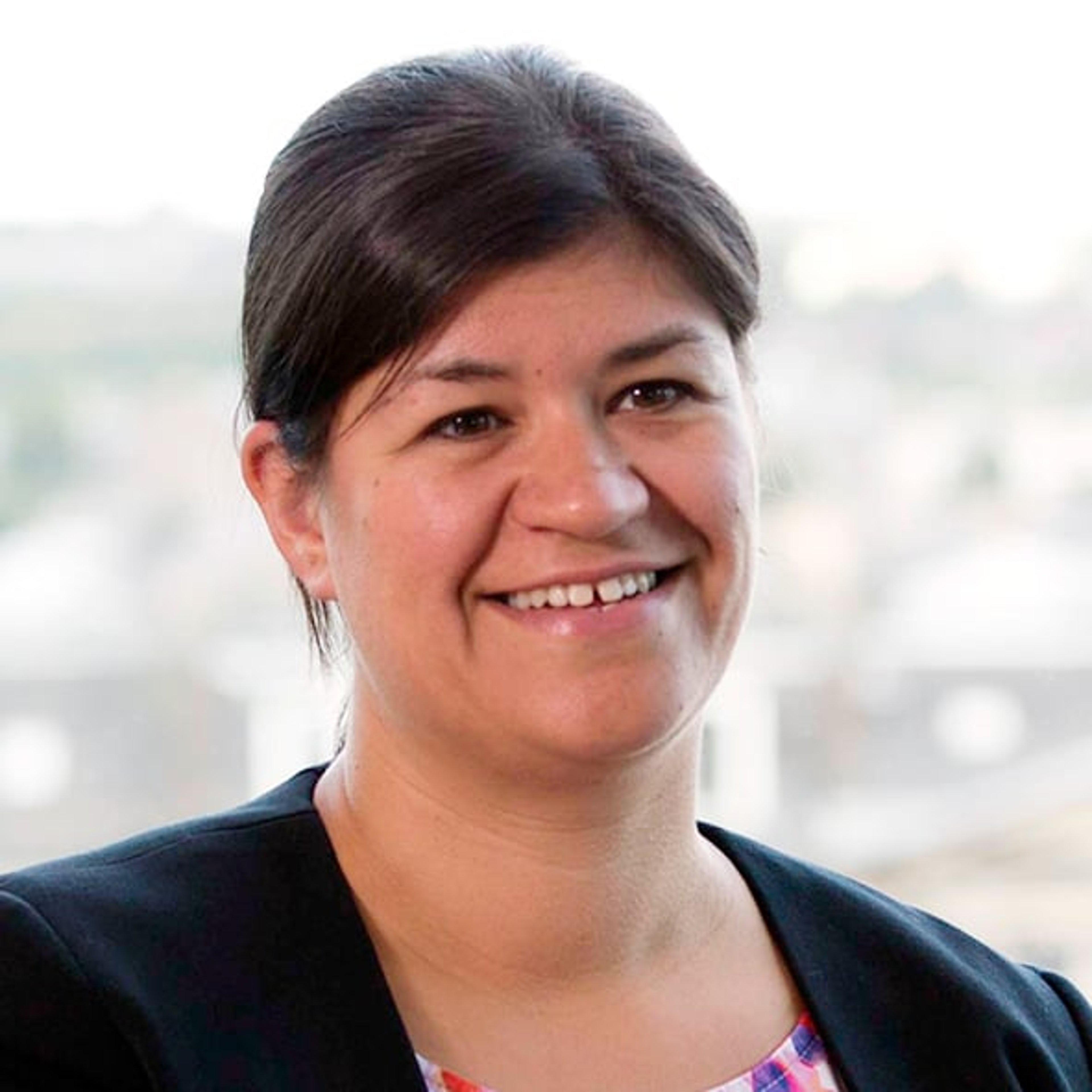
For professional audiences only. It is not intended for use by retail clients.
All investment strategies have the potential for profit and loss, your or your clients’ capital may be at risk.
During the pandemic, when we were allowed out for our daily walk, my route often took me past the Modern Art Galleries in Edinburgh, sitting opposite each other above the Water of Leith.
They were, of course, closed. But I could see in the grounds of one an illuminated artwork sign that read, “there will be no miracles here1,” and above the entrance of the other, a sign that reassured, “everything’s going to be alright2.” Under the circumstances, both messages were poignant.
Fast-forward a few years, and those two messages could be used again, this time about investment markets.
In 2022, a vicious combination of excess demand from economies reopening, tight supply chains and war saw bond and equity markets struggle.
Given the resultant rising inflation, tightening monetary policy – in the form of interest rate rises – and geopolitical tensions, investors could be forgiven for praying for a miracle.
The same year marked the end of an exceptionally long equity bull market and until recently, the concentration of market returns in just a few places left limited opportunity for multi-asset managers to show the strength and virtue of their approach.
Put simply, diversification was not rewarded.
But what about the next decade? The year 2022 was pivotal, an end to the supportive environment of the previous decade. This is where a multi-asset approach will come into its own.
Diversification may not have been rewarded recently, but the academic arguments for investing in this way remain strong. A portfolio’s risk/return trade-off can be enhanced significantly by investing across a range of return-generating asset classes.
This is because the volatility of a diversified portfolio is lower than the weighted average of the volatilities of each asset class held. Plus, the expected median return is greater than the weighted average of expected median returns on the individual asset classes held. The greater the number of assets held, the greater the likelihood of extreme positive outcomes.
And when we look at the starting point of valuations from today, the expected returns for some asset classes are as good as they have been since the financial crisis.
Below is a chart which shows our views on prospective returns for a range of asset classes (passive, above cash) over the next 10 years.
Our long-term return expectations
Source: Baillie Gifford & Co.
We view these return estimates as broadly sensible indications of likely returns. They should not be interpreted as high-precision forecasts nor are they likely to bear much resemblance to returns over shorter time horizons.
Many of the asset classes we think look the best value, where we see the most significant gap between their long-run average returns and prospective future returns, might be classified as alternative or diversifiers. These include, for example, emerging market hard currency debt, mezzanine structured finance and property.
Investing in a multi-asset portfolio can expose you to these asset classes in a liquid and sustainable fashion. In addition, active multi-asset managers can go further and deeper to find the best investment opportunities.
By further, we mean taking positions in some non-traditional asset classes, such as structured finance or insurance-linked securities. By deeper, we mean investing in specific exciting areas within asset classes, for example, Asian high yield within credit or rare earths within commodities.
And we think that some of these less familiar asset classes seem very worthwhile investments at this moment in time.
So, while 2022 was a tough year for investors, we also know that some of the best returns are made by investing counter-cyclically, and these recent market drawdowns have magnified the opportunity from here.
We are currently seeing a compelling opportunity in structured finance, particularly within collateralised loan obligations (CLOs), which are pools of corporate loans (drawn from a range of industry sectors to mitigate risk) with credit support.
Following the financial crisis, when some parts of the securitised instrument market got into difficulties, regulators stepped in to mitigate CLOs’ structural risks meaning there is now greater default protection for investors.
The mezzanine tranches of these are currently yielding 9–14 per cent, an excellent return, but also come with the chance of capital appreciation. These are floating rate instruments, therefore not impacted by inflation, and offering diversification from other fixed income assets.
Our approach is to invest via funds where we know the managers well, are comfortable they are aligned with our investment ethos, and actively engage with them on important topics, such as ESG issues.
Another specific opportunity we are investing in is rare earth metals within commodities. The metallic elements neodymium and praseodymium are critical components in many products, including mobile phones and flat-screen monitors.
However, we are most excited by their use in renewable technologies. The drive to cleaner energy sources will see continued demand for wind turbines and electric vehicles and, as a result, strong demand for these rare earths.
And those are just a few of the investment ideas we are excited about, ideas we can access because of our wide opportunity set and flexible approach to multi-asset investing.
Ideas which, when put alongside certain equities, property, infrastructure and government bonds, offer that diversification from the traditional asset class suite.
As investors, we are aware of the difficulty in predicting short-term market outcomes. However, the opportunities currently available to multi-asset investors and the benefits of diversification mean we do not need to find miracles. Rather, we believe that, by investing in multi-asset funds, everything will be alright.
1There will be no Miracles Here, Nathan Coley, 2007-2009, Scottish National Gallery of Modern Art (Modern Two).
2Work No. 975 EVERYTHING IS GOING TO BE ALRIGHT, Martin Creed, 2008, Scottish National Gallery of Modern Art (Modern One).
Risk Factors
The views expressed should not be considered as advice or a recommendation to buy, sell or hold a particular investment. They reflect opinion and should not be taken as statements of fact nor should any reliance be placed on them when making investment decisions.
This communication was produced and approved in June 2023 and has not been updated subsequently. It represents views held at the time of writing and may not reflect current thinking.
This communication contains information on investments which does not constitute independent research. Accordingly, it is not subject to the protections afforded to independent research, but is classified as advertising under Art 68 of the Financial Services Act (‘FinSA’) and Baillie Gifford and its staff may have dealt in the investments concerned.
All information is sourced from Baillie Gifford & Co and is current unless otherwise stated.
The images used in this communication are for illustrative purposes only.
Important Information
Baillie Gifford & Co and Baillie Gifford & Co Limited are authorised and regulated by the Financial Conduct Authority (FCA). Baillie Gifford & Co Limited is an Authorised Corporate Director of OEICs.
Baillie Gifford Overseas Limited provides investment management and advisory services to non-UK Professional/Institutional clients only. Baillie Gifford Overseas Limited is wholly owned by Baillie Gifford & Co. Baillie Gifford & Co and Baillie Gifford Overseas Limited are authorised and regulated by the FCA in the UK.
Persons resident or domiciled outside the UK should consult with their professional advisers as to whether they require any governmental or other consents in order to enable them to invest, and with their tax advisers for advice relevant to their own particular circumstances.
Financial Intermediaries
This communication is suitable for use of financial intermediaries. Financial intermediaries are solely responsible for any further distribution and Baillie Gifford takes no responsibility for the reliance on this document by any other person who did not receive this document directly from Baillie Gifford.
Europe
Baillie Gifford Investment Management (Europe) Limited provides investment management and advisory services to European (excluding UK) clients. It was incorporated in Ireland in May 2018. Baillie Gifford Investment Management (Europe) Limited is authorised by the Central Bank of Ireland as an AIFM under the AIFM Regulations and as a UCITS management company under the UCITS Regulation. Baillie Gifford Investment Management (Europe) Limited is also authorised in accordance with Regulation 7 of the AIFM Regulations, to provide management of portfolios of investments, including Individual Portfolio Management (‘IPM’) and Non-Core Services. Baillie Gifford Investment Management (Europe) Limited has been appointed as UCITS management company to the following UCITS umbrella company; Baillie Gifford Worldwide Funds plc. Through passporting it has established Baillie Gifford Investment Management (Europe) Limited (Frankfurt Branch) to market its investment management and advisory services and distribute Baillie Gifford Worldwide Funds plc in Germany. Similarly, it has established Baillie Gifford Investment Management (Europe) Limited (Amsterdam Branch) to market its investment management and advisory services and distribute Baillie Gifford Worldwide Funds plc in The Netherlands. Baillie Gifford Investment Management (Europe) Limited also has a representative office in Zurich, Switzerland pursuant to Art. 58 of the Federal Act on Financial Institutions (“FinIA”). The representative office is authorised by the Swiss Financial Market Supervisory Authority (FINMA). The representative office does not constitute a branch and therefore does not have authority to commit Baillie Gifford Investment Management (Europe) Limited. Baillie Gifford Investment Management (Europe) Limited is a wholly owned subsidiary of Baillie Gifford Overseas Limited, which is wholly owned by Baillie Gifford & Co. Baillie Gifford Overseas Limited and Baillie Gifford & Co are authorised and regulated in the UK by the Financial Conduct Authority.
Hong Kong
Baillie Gifford Asia (Hong Kong) Limited 柏基亞洲(香港)有限公司 is wholly owned by Baillie Gifford Overseas Limited and holds a Type 1 and a Type 2 license from the Securities & Futures Commission of Hong Kong to market and distribute Baillie Gifford’s range of collective investment schemes to professional investors in Hong Kong. Baillie Gifford Asia (Hong Kong) Limited 柏基亞洲(香港)有限公司 can be contacted at Suites 2713-2715, Two International Finance Centre, 8 Finance Street, Central, Hong Kong. Telephone +852 3756 5700.
South Korea
Baillie Gifford Overseas Limited is licensed with the Financial Services Commission in South Korea as a cross border Discretionary Investment Manager and Non-discretionary Investment Adviser.
Japan
Mitsubishi UFJ Baillie Gifford Asset Management Limited (‘MUBGAM’) is a joint venture company between Mitsubishi UFJ Trust & Banking Corporation and Baillie Gifford Overseas Limited. MUBGAM is authorised and regulated by the Financial Conduct Authority.
Australia
Baillie Gifford Overseas Limited (ARBN 118 567 178) is registered as a foreign company under the Corporations Act 2001 (Cth) and holds Foreign Australian Financial Services Licence No 528911. This material is provided to you on the basis that you are a “wholesale client” within the meaning of section 761G of the Corporations Act 2001 (Cth) (“Corporations Act”). Please advise Baillie Gifford Overseas Limited immediately if you are not a wholesale client. In no circumstances may this material be made available to a “retail client” within the meaning of section 761G of the Corporations Act.
This material contains general information only. It does not take into account any person’s objectives, financial situation or needs.
South Africa
Baillie Gifford Overseas Limited is registered as a Foreign Financial Services Provider with the Financial Sector Conduct Authority in South Africa.
North America
Baillie Gifford International LLC is wholly owned by Baillie Gifford Overseas Limited; it was formed in Delaware in 2005 and is registered with the SEC. It is the legal entity through which Baillie Gifford Overseas Limited provides client service and marketing functions in North America. Baillie Gifford Overseas Limited is registered with the SEC in the United States of America.
The Manager is not resident in Canada, its head office and principal place of business is in Edinburgh, Scotland. Baillie Gifford Overseas Limited is regulated in Canada as a portfolio manager and exempt market dealer with the Ontario Securities Commission ('OSC'). Its portfolio manager licence is currently passported into Alberta, Quebec, Saskatchewan, Manitoba and Newfoundland & Labrador whereas the exempt market dealer licence is passported across all Canadian provinces and territories. Baillie Gifford International LLC is regulated by the OSC as an exempt market and its licence is passported across all Canadian provinces and territories. Baillie Gifford Investment Management (Europe) Limited (‘BGE’) relies on the International Investment Fund Manager Exemption in the provinces of Ontario and Quebec.
Israel
Baillie Gifford Overseas is not licensed under Israel’s Regulation of Investment Advising, Investment Marketing and Portfolio Management Law, 5755-1995 (the Advice Law) and does not carry insurance pursuant to the Advice Law. This material is only intended for those categories of Israeli residents who are qualified clients listed on the First Addendum to the Advice Law.
Ref: 47613 10030345





